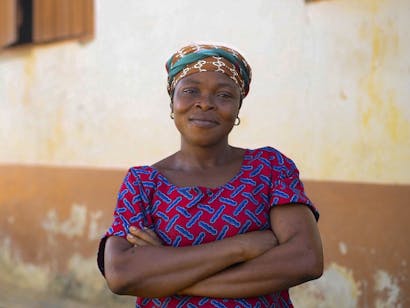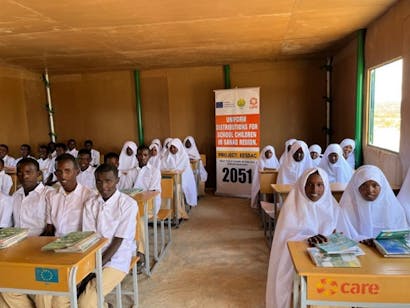Women’s political participation & influence
Recent years have seen a growing recognition in the international development community of the importance of supporting women’s political participation and influence in fragile and conflict affected settings. However, despite improvements in policy and funding, the international community is still failing to effectively support women’s political participation and influence. CARE believes that engaging women in political decision-making processes strengthens their power, agency and rights. To highlight this important topic CARE Nederland joined forces with WO=MEN Dutch Gender Platform and the Netherlands Institute for Multiparty Democracy (NIMD), and organised a policy debate on the 29th of March in the Humanity House in The Hague.
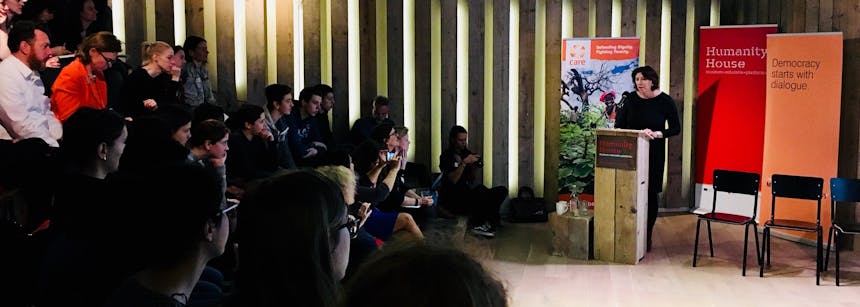
Women’s participation in peace processes
In the presence of representatives from the Dutch Ministry of Foreign Affairs, Dutch parliament, peer NGOs and high-school students from Rotterdam the debate was opened by Dutch ambassador of Yemen, Irma van Dueren. She emphasized the necessity of women’s presence in peace processes and negotiations, and how this leads to increased participation of women in political processes. After Irma van Dueren, Tam O’Neil of CARE UK shared preliminary findings of a recent CARE research. She referred to broader evidence, showing that women’s participation in peace processes and constitutions lead to agreements that are more likely to include rights of women and marginalised groups, including their future political representation, and that the agreements remain in force longer.
Ways to increase women’s political participation
During the panel discussion of the debate both the audience and panellists were requested to reflect on three statements, of which the outcomes and some reactions are described below. Take a look at #whenwomendecide on Twitter to see and read more on the policy debate!

The panellists quickly brought some nuance to the first statement. Jamila Aanzi (former Dutch women’s representative at the UN) mentioned: “I think you forgot the word also“, stating that programmes should include both women ánd men. Stieneke van der Graaf (Member of Parliament for the Christian Union) explained that if we would only focus on men, we do only half the work.
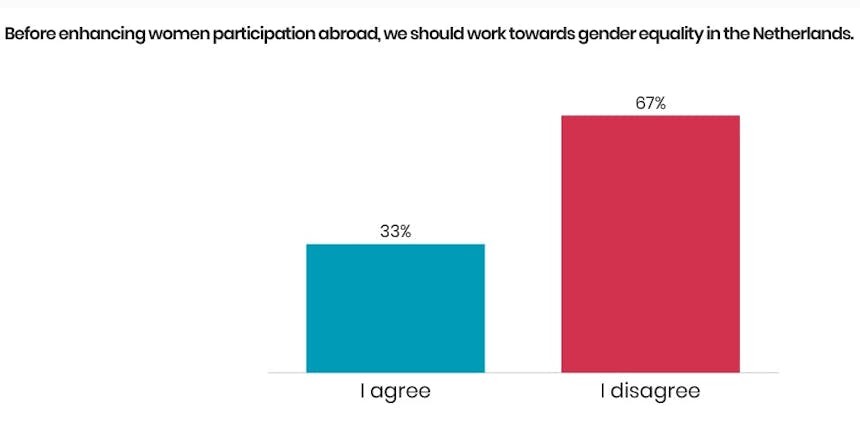
A student from the audience reflected on the second statement by saying: “I disagree, we should focus on two things at a time and there is a greater need abroad than here.” One of the panellists responded to this by arguing that we really should work more on practising women’s political participation here in the Netherlands. Although our country has laws that support women, in practice we do not have many women in parliament and decision making positions.
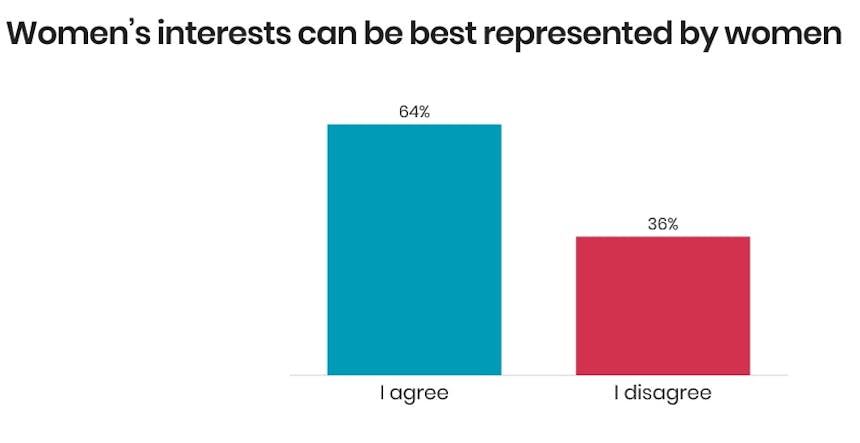
Laila Ait Baali (political coordinator at WO=MEN Dutch Gender platform) disagreed with the third statement by stating that there are also women who do not serve women’s interests, whereas there are men that believe in gender equality. According to Marit Maij (former Member of Parliament for the Dutch Labour Party) we should be bolder and emphasize the need to have women in politics in order to present women’s interests.
Time to walk the talk
Some final remarks to conclude the policy debate were given by Simone Filippini (director of NIMD). She emphasized that it’s time to get more women into politics: 95% of leaders are men, but until now they haven’t delivered on substantive change. So it’s time to walk the talk and practice what we preach. According to the audience, who were asked to finish the sentence when women decide…¸ some positive developments and changes will happen once we’ve increased the participation of women in politics. So let’s keep those thoughts in mind!
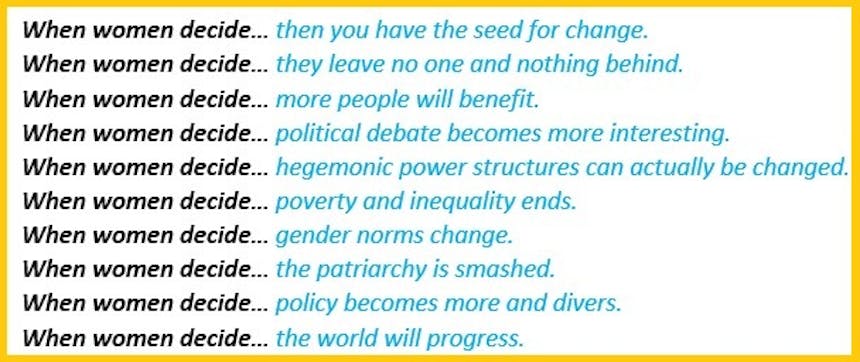
If you are interested in the recommendations and outcomes of the policy debate, please find them here.
